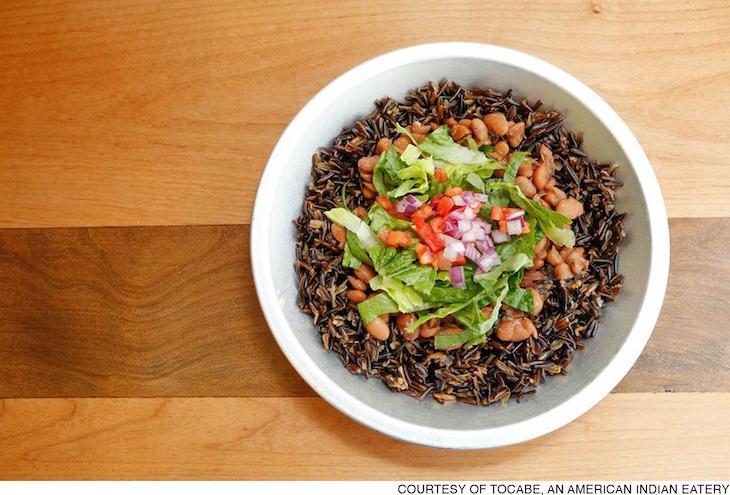College can be an amazing experience, with tons of new friends, new activities, and new foods to try. At the same time, it can be overwhelming trying to balance a busy schedule and a healthy lifestyle. Healthy eating habits are important throughout your life, but especially during college when late-night cramming sessions and a full calendar can easily cause you to deviate from a balanced plan. Here are some tips to maintain a healthy diet.
Eat Breakfast
When you’re running late for class or waking up at noon, it may seem silly to eat breakfast. But the benefits of eating breakfast are huge and can help set you up for a successful day of healthy eating. Breakfast helps to jumpstart your metabolism, ensures you’re able to function at your best, and helps keep you from snacking on less appropriate food options. Breakfast can be something as quick and easy as a banana, or as hearty as a western omelet. Either way, make sure you start your day with breakfast.
Hydrate
Drinking water throughout the day is very important. Often our bodies mistake thirst for hunger. This can lead to overeating and dehydration. Carry a water bottle with you and refill it as you go about your day. Most campuses have water stations in the dining halls and academic buildings — take advantage of them. Staying hydrated can help fend off headaches and curb hunger, which means you’ll be less likely to overeat at your next meal..
Carry Healthy Snacks
You’ll probably find that you spend much of your college career on the go. Keeping lots of portable, healthy snacks with you will make it much easier to maintain a healthy diet. Snacks like granola bars, protein bars, nuts, seeds, and even popcorn are all great snacks that travel well and can help to stave off those incessant hunger pangs you feel throughout the day.
Don’t Eat Because Everyone Else is Eating
Whether it’s dinner in the dining hall or a late-night pizza, eat only when you are hungry. It can be easy to get seconds and even thirds of meals when you’re in the dining hall with friends lingering over lunch or dinner, but that’s also a very easy way to overeat. Listen to your body. Don’t get more food just because your friends are eating. The same goes for late-night meals. If you’re eating simply because the food is there or everyone else is having a slice of pizza, take a step back and assess whether that makes sense. In time, you’ll find it easier to eat only when you’re hungry, which will prevent overeating and help you maintain your healthy diet.
Go Easy on the Caffeine
You can’t live without your morning cup of coffee? That's understandable. You don't need to eliminate coffee, but try to keep the caffeine intake in check. Caffeine in small doses can help wake you up, keep you alert, and give you an energy boost. But when you have too much caffeine, the more negative effects, such as heightened levels of anxiety and increased heart rate, may start to kick in. Like everything, make sure you have caffeine in moderation. Your body will thank you.
Whether you’re in your first year or your senior year, maintaining a healthy diet while at college is key to your success. Make sure you stay hydrated, eat when hungry, and eat a variety of foods in moderation. Creating healthy habits to maintain a healthy diet in college can set you up to do the same after graduation. Figure out what works best for you and then stick with it. Happy, and healthy, eating!
ON TOPIC
We asked some college students how they approach healthy living on campus. Here’s what they had to say.
“When I eat dinner in the dining hall, I think about how my parents serve meals at home and try to replicate that by choosing a meat, some veggies, and a starch.” — Brendan, Iowa State University
“My first year on campus, I was a little too excited about the variety of food and took more than I could eat. I found myself feeling so stuffed and uncomfortable — not to mention the amount of food I wasted by not even eating. Soon, I realized every meal didn’t need to be a feast and began taking only what I needed.” — Paul, University of Michigan
“I try to limit how many sweets I have in a day. It can be hard not to indulge when everyone at the table is devouring unhealthy foods, but I’ve learned it’s not worth the sugar crash later when I’m trying to focus and study.” — Johanna, UCLA
“My schedule is pretty busy, so I keep trail mix and fruit in my backpack so I can snack as I go through my day.” — Ann, New Mexico Tech
“Getting up for breakfast isn’t always easy, but it’s definitely worth it — especially on days when I have back-to-back classes and labs.” — Alex, Oregon State University
“After dinner, my friends and I take a walk. It’s become a fun way to catch up with each other and clear our heads before we start studying for the night.” — Mia, Stanford University














